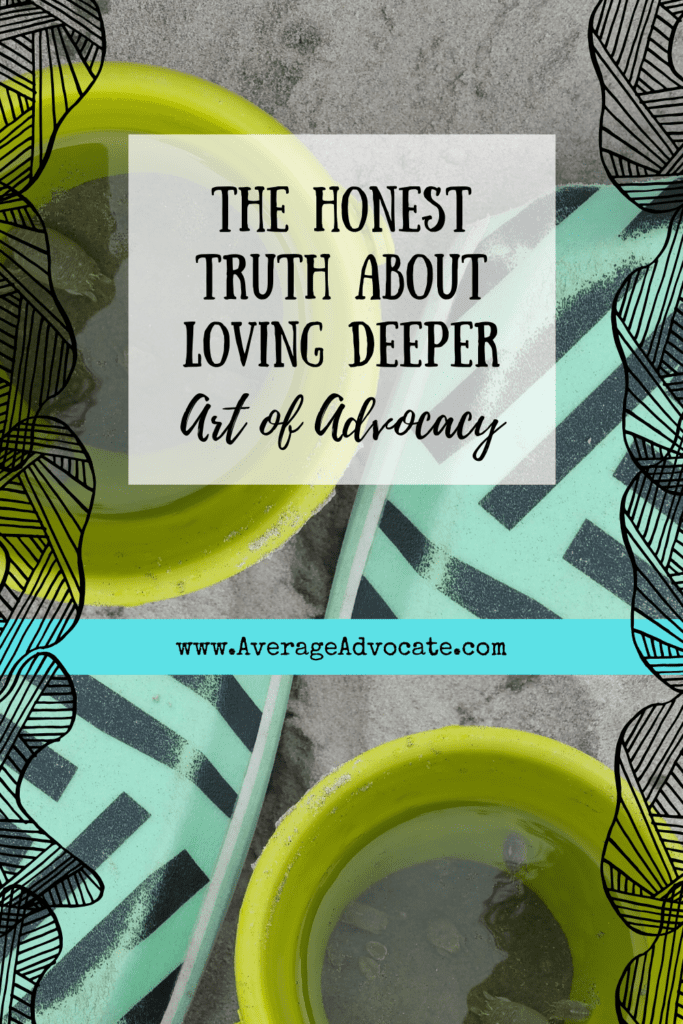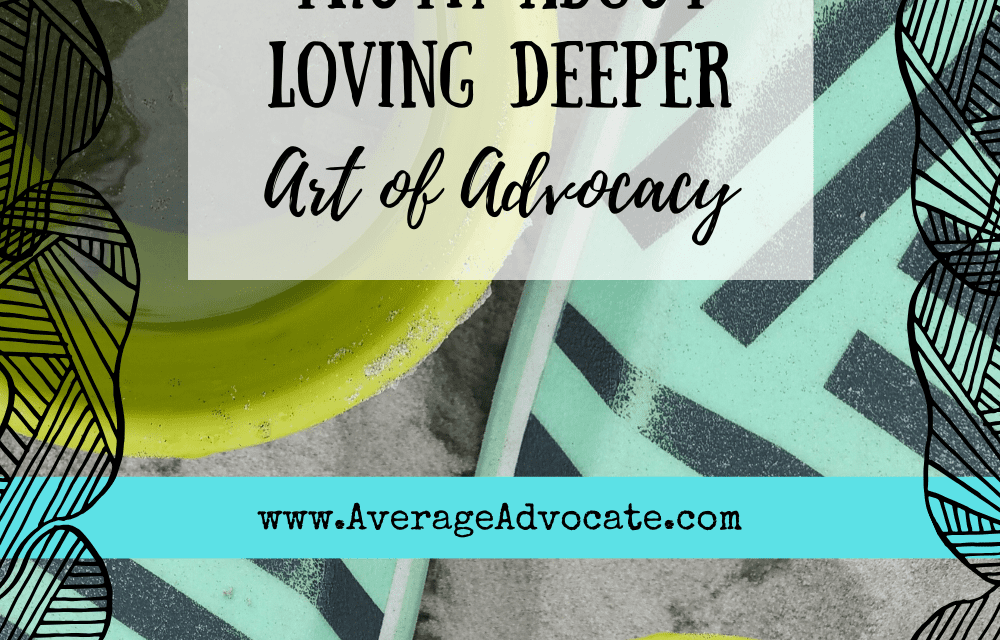Loving others seemed good and something to be defined by. Until it was loving the same small group of people deeper.
Loving people seems like living a great story. Loving my family was just draining.
Loving someone from another culture felt exotic. Loving those I see everyday feels blasé.
Loving those I lead feels vital and purposeful. Loving my children, whom I also lead, seems endless; too easily I lose sight of why.
Loving my neighbors is like I’m building community. Loving that needy one feels like a chore.
Loving my wide group of acquaintances and friends is fun, full of expectation and is life-giving. Loving my spouse feels like I give more than I receive. It’s annoyingly unconditional; it’s grace stacked upon grace.
Loving on the streets, battling for justice, is for a worthy cause; it is righteousness. Loving one deeply who has survived the trauma from that injustice, though, is an excruciating long game; it is sacrifice.
Loving the poor by serving at a soup kitchen is a satisfying box to check. Loving that man who sits with his cardboard sign day after day, walking with them as they overcome addiction and secure a job is way too much.
Signing a petition for .00001% of our budget to go to anti-retroviral therapy drugs makes me feel powerful. Showing up at that man’s house to pray for and encourage him as AIDS racks his body is uncomfortable and awkward for both of us.
Loving policies that keep families together at the border is valiant. Welcoming immigrants by inviting them for dinner, teaching them English and listening to the stories feels like a huge and scary commitment.
Going to nursing homes to play bingo seems sweet, commendable. Helping my elderly parents go to the bathroom and shower until they decline into ashes? That is a job for someone else.
Loving children is a morality we wholeheartedly support and expect from our society. But which of us actually will mentor, adopt, foster or sponsor a little one year after year, becoming that parent that little one didn’t have?
It’s easy to love the masses by condemning criminals to prisons and baring them as felons. But will I ever be able to switch gears from punishment to restoration? Would I ever visit an individual in their incarceration, reminding them of their human dignity and seeing them for who they were born to be?
Being woke to racism and holding a sign that screams “Black Lives Matter” empowers me as I empower a movement. But actually going out of my way to check on my Black friends (or even go out of my circles to make Black friends) and listen as a learner doesn’t feel empowering, it is humbling.
Loving the world is exciting. But loving real people? That’s another game all together.
Loving Others, Loving Public, Loving Deeper
Being a justice-seeker and activist can be good. In fact,
public love is vital in the art of advocacy. And doing ministry or nonprofit work can be good. But are those actually good if we can’t love close to home, deeper? Those are some honest thoughts from someone who has been learning to love deeper over the last few years.
Did this post help you? If so, feel free to share it!



This really resonated with me! I struggle too with daily boots-on-the-ground deeper call to love with the people around me because it often involves more sacrifice.